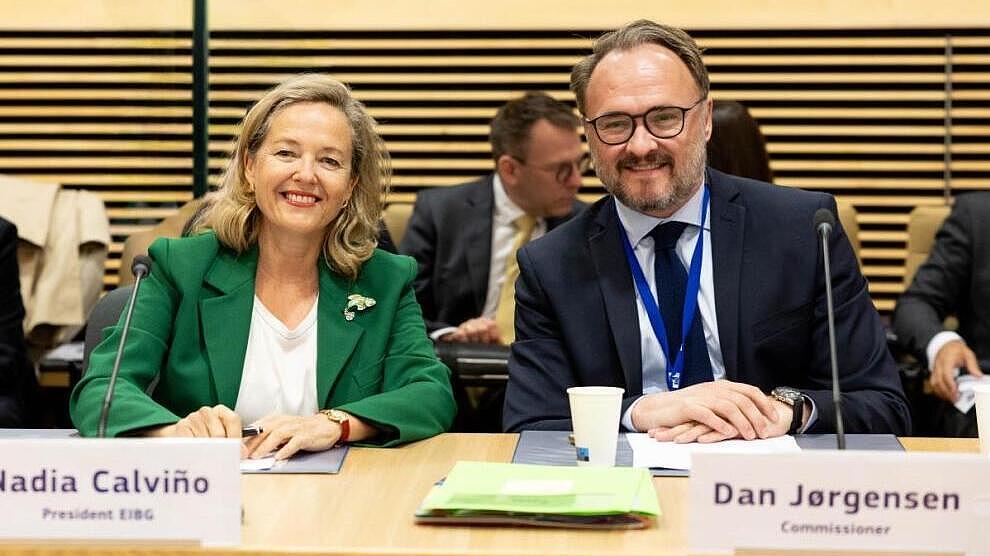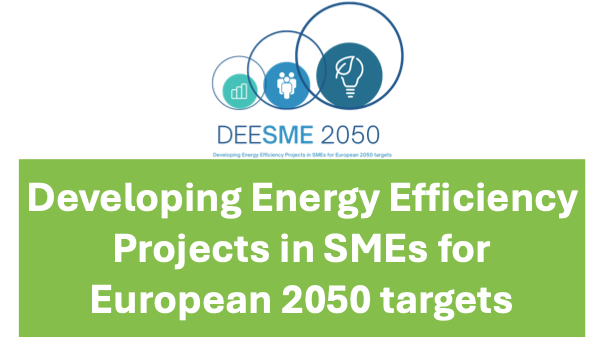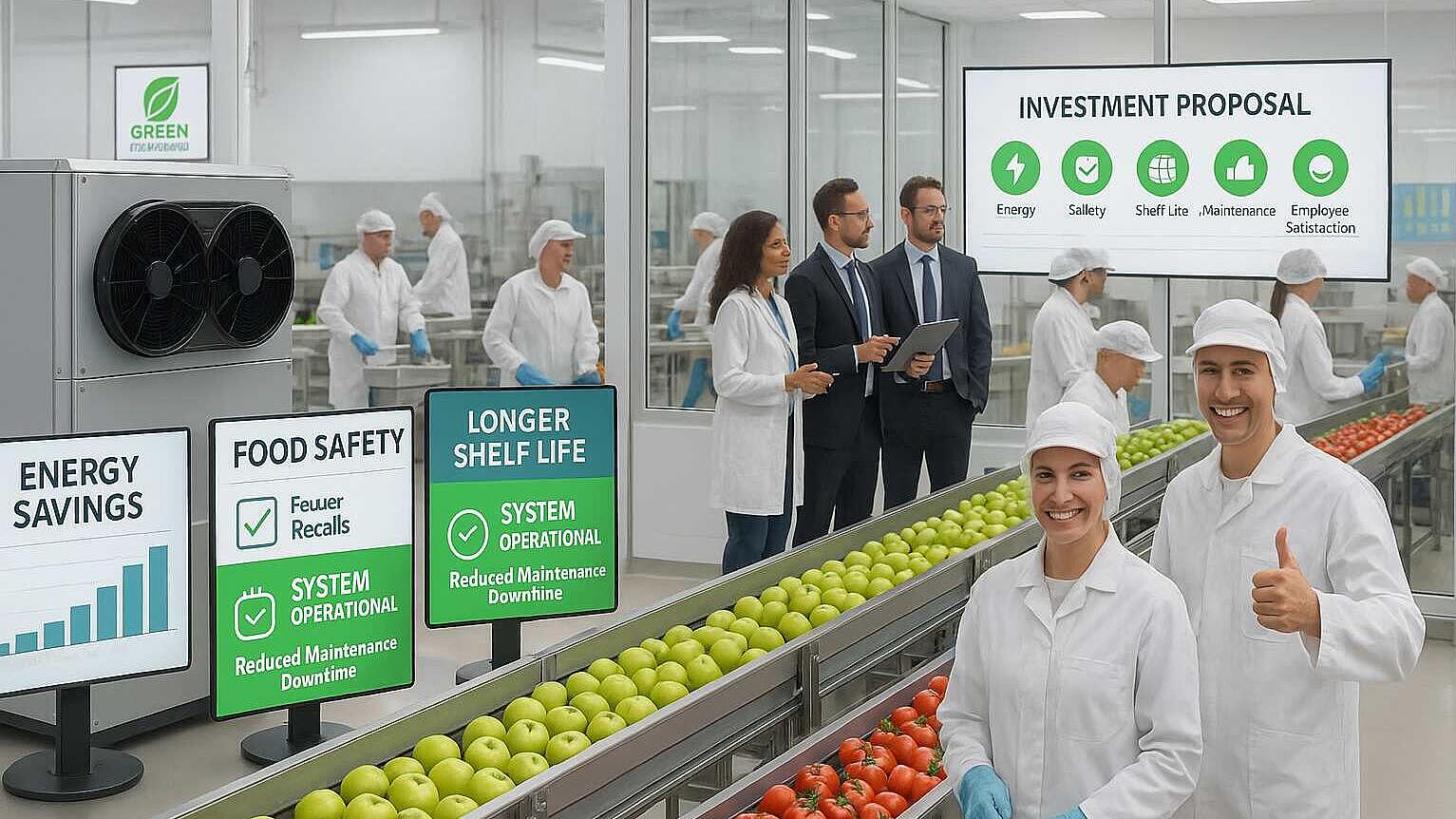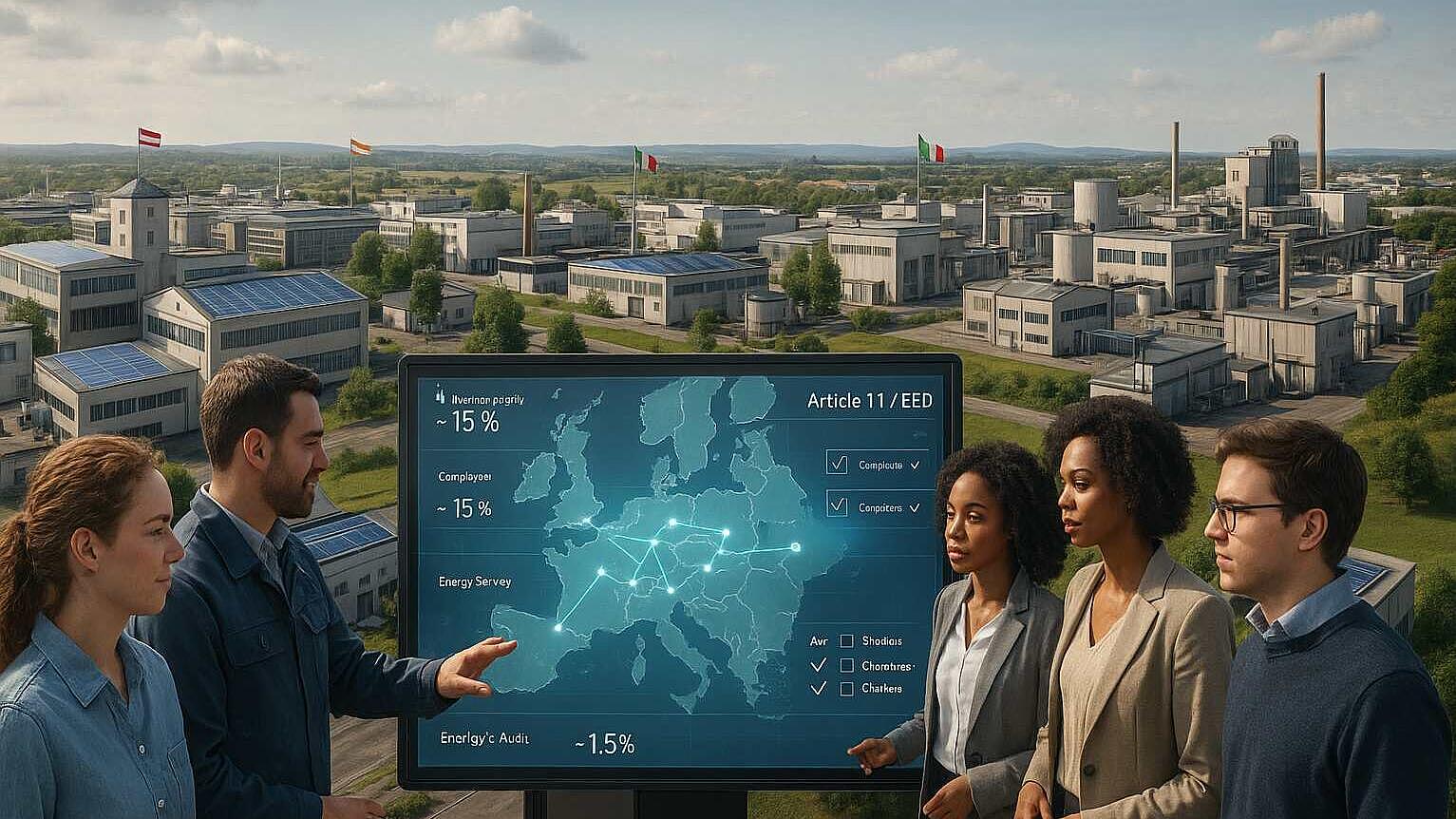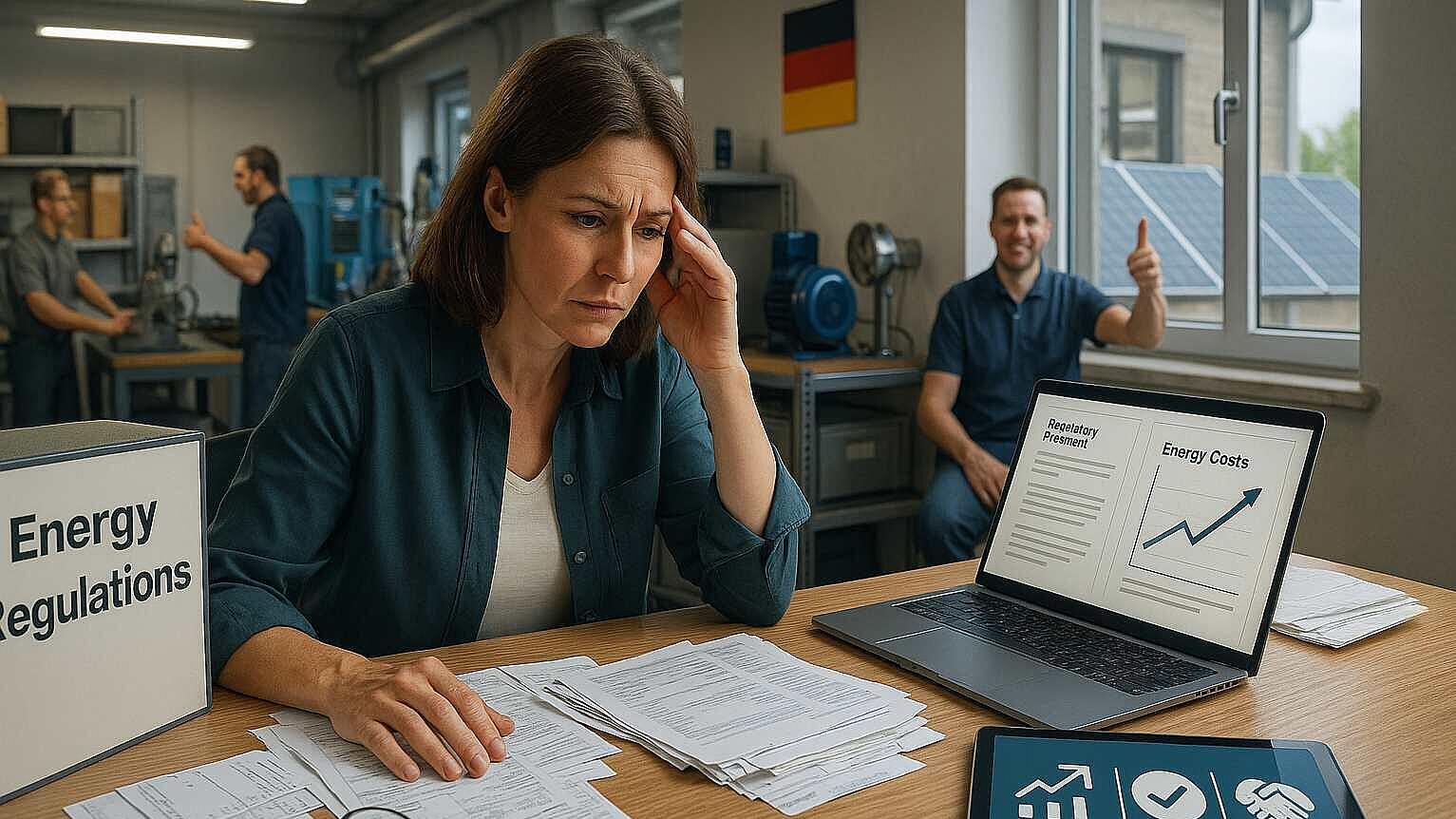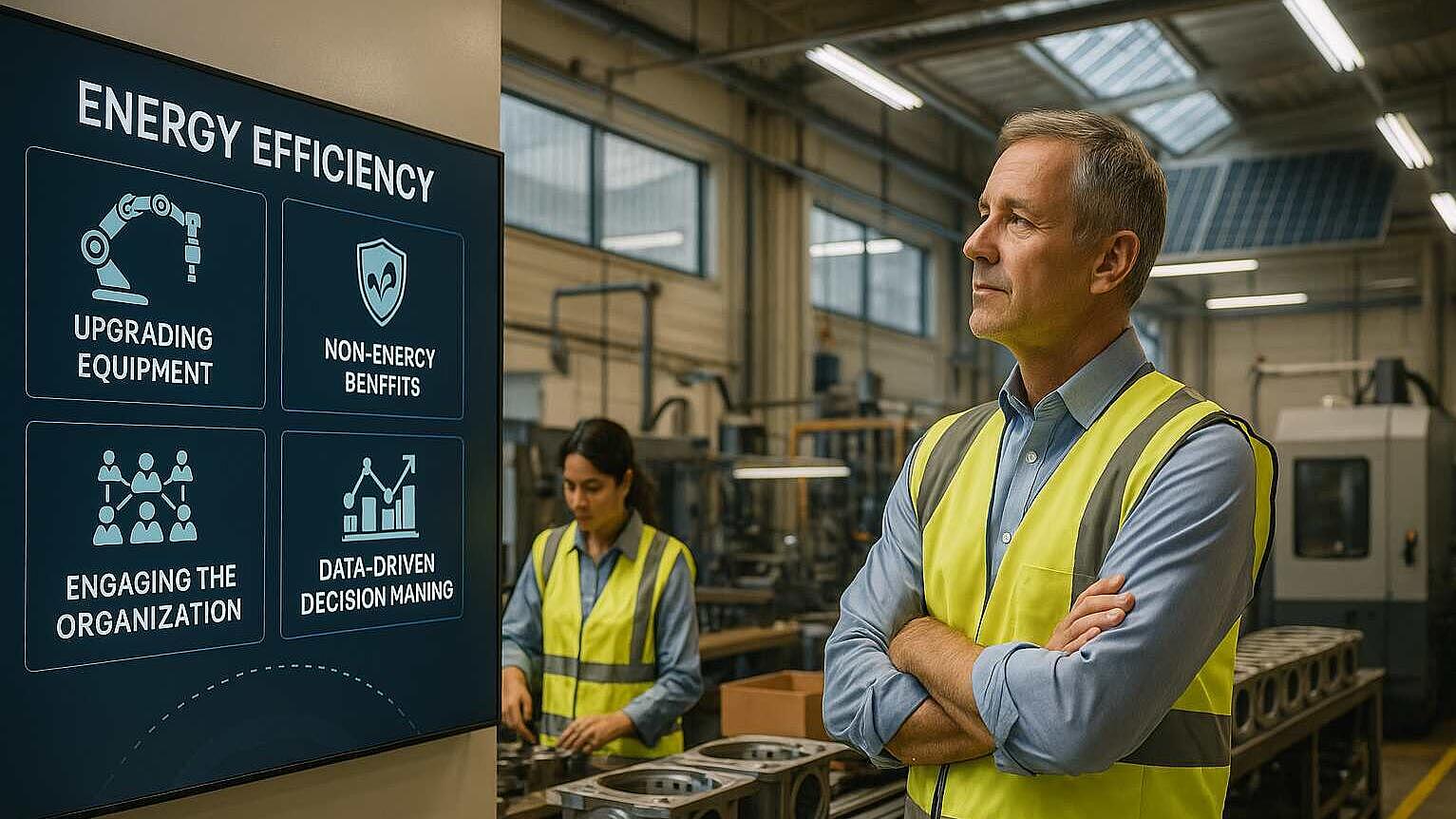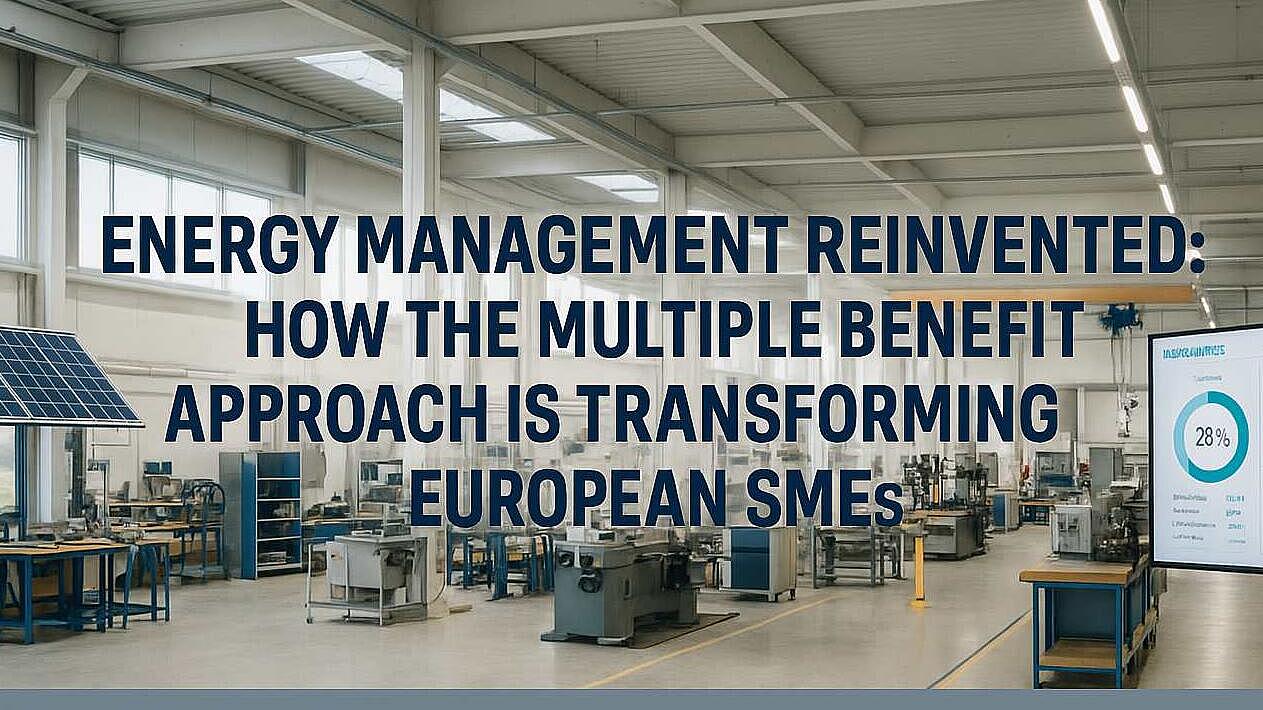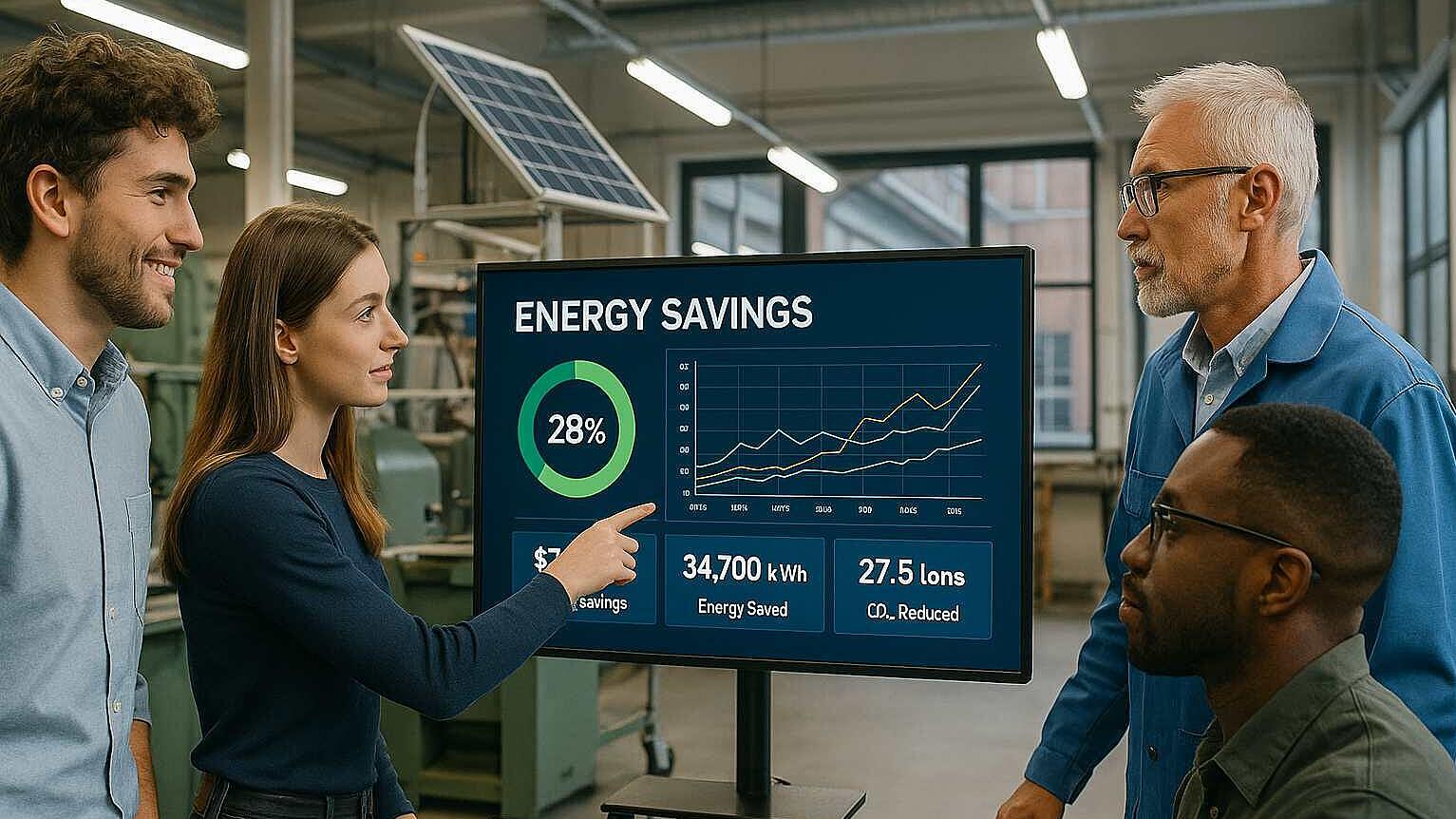 Energy Efficiency
Energy EfficiencyEnergy Efficiency
Está a ser dado mais apoio às PME na Europa para se tornarem mais eficientes do ponto de vista energético
O Grupo Banco Europeu de Investimento (BEI), com o apoio da Comissão Europeia, apresentou uma iniciativa de financiamento de 17,5 mil milhões de euros para ajudar mais de 350 000 PME em toda a Europa a melhorar a eficiência energética. A iniciativa, anunciada pelo Comissário Europeu para a Energia e Habitação, Dan Jørgensen, e pela Presidente do Grupo BEI, Nadia Calviño, tem como objetivo mobilizar mais de 65 mil milhões de euros em investimentos até 2027 para colmatar as lacunas de eficiência energética no mercado. O relatório que acompanha o anúncio salienta que as empresas europeias investem menos em eficiência energética em comparação com as suas congéneres norte-americanas, apesar dos custos energéticos mais elevados, mas estão a tomar medidas para investir em medidas de poupança de energia. O novo financiamento do BEI integrará instrumentos de dívida e de capital próprio, quase duplicando os actuais níveis de apoio para o período 2025-2027, a fim de facilitar a eficiência energética e a descarbonização das PME. Será criado um balcão único para a eficiência energética, a fim de simplificar o acesso e o apoio, integrando toda a oferta de empréstimos intermediados do Grupo BEI. A iniciativa será reforçada por garantias orçamentais da UE através do InvestEU e do programa ambiental LIFE. Está também a ser lançado um grupo de trabalho específico para as PME no âmbito da Coligação Europeia para o Financiamento da Eficiência Energética, com o objetivo de eliminar os obstáculos e desenvolver soluções de financiamento adaptadas às PME. O BEI apoiará plataformas de investimento específicas que trabalham com parceiros privados para financiar projectos de eficiência energética de PME, atraindo capital para o ecossistema de eficiência energética da Europa. Esta iniciativa está em consonância com os objectivos da UE definidos no Pacto Industrial Limpo e no Plano de Ação para uma Energia Acessível.
Leer Artigo completoDestaque para o projeto financiado pela UE - Libertar o potencial das PME: Financiar a eficiência energética para um futuro sustentável
O documento sublinha a importância da eficiência energética nas PME europeias, que são cruciais para a economia e competitividade do continente. O projeto DEESME 2050, financiado pela UE, destaca os potenciais benefícios da melhoria do desempenho energético na indústria do mobiliário. Os investimentos e a implementação de políticas devem ser acelerados para cumprir os objectivos climáticos da UE para 2030, e novas iniciativas como a EEEFC visam apoiar esta transição. Os intermediários financeiros são identificados como vitais para o acesso das PME aos fundos, aproveitando as experiências de organizações como a EEIP e os bancos públicos para facilitar este processo.
Leer Artigo completoDesbloquear o verdadeiro valor: Porque é que os benefícios múltiplos são o futuro da eficiência energética
O projeto M-Benefits revela que os investimentos em eficiência energética ignoram frequentemente benefícios cruciais como a qualidade do produto, a redução do risco operacional e a competitividade. Esta lacuna persiste apesar da clara rentabilidade, uma vez que os métodos de avaliação convencionais se centram apenas nas poupanças de energia. O projeto fornece ferramentas, formação e estudos de caso para ajudar os profissionais a comunicar e a potenciar o valor total de um projeto, apelando a uma mudança para englobar resultados empresariais estratégicos, para além de meras melhorias técnicas.
Leer Artigo completoUltrapassar barreiras: Como o artigo 11º da Diretiva Eficiência Energética está a impulsionar uma verdadeira mudança em toda a Europa
O projeto DEESME melhora a gestão energética da UE através da colaboração, de comunicações claras e da concentração em benefícios múltiplos, abordando os desafios que as PME enfrentam em termos de conformidade, qualidade da auditoria e reconhecimento de vantagens mais amplas da eficiência energética para além das poupanças.
Leer Artigo completoCinco grandes passos para uma Europa mais inteligente e mais ecológica: Repensar os regimes energéticos nacionais
O projeto DEESME tem como objetivo simplificar a eficiência energética para as PME europeias, fornecendo recomendações práticas de esquemas nacionais centradas no utilizador, destacando os benefícios e tornando as orientações políticas claras e acessíveis, juntamente com o incentivo à avaliação comparativa e ao rastreio da pegada de carbono.
Leer Artigo completoPara além da poupança de energia: Como as PME europeias estão a liderar o caminho com a abordagem de benefícios múltiplos
O projeto DEESME demonstra como as PMEs em toda a Europa beneficiam de auditorias energéticas integradas, conseguindo poupanças de energia e desbloqueando múltiplas vantagens comerciais, tais como maior inovação, satisfação dos funcionários e resiliência.
Leer Artigo completoRedefinir as auditorias energéticas: A abordagem de benefícios múltiplos DEESME para as PME europeias
A Abordagem de Benefícios Múltiplos DEESME transforma as auditorias energéticas para PMEs numa ferramenta estratégica de melhoria do negócio, enfatizando a produtividade, a sustentabilidade e o bem-estar dos funcionários, para além da mera conformidade. Este método inovador promove benefícios holísticos e equipa os futuros líderes para impulsionar a transição energética.
Leer Artigo completoA gestão da energia reinventada: como a abordagem de benefícios múltiplos está a transformar as PME europeias
O projeto DEESME promove uma abordagem de benefícios múltiplos, integrando a eficiência energética com objectivos empresariais mais amplos nas PME, alinhando-se com a política de sustentabilidade da UE e melhorando vários aspectos não energéticos, como a segurança e a qualidade dos produtos.
Leer Artigo completoLibertar a eficiência energética nas PME: Lições de sete projectos europeus
Apesar de representar uma parte significativa da procura de energia na Europa, a maioria das PME enfrenta desafios na adoção de medidas de eficiência energética devido a restrições financeiras, falta de conhecimentos, pressões de tempo e inércia cultural. No entanto, a investigação de sete projectos europeus sugere que a formação específica, as auditorias energéticas e a colaboração podem ultrapassar estas barreiras, com potencial para poupanças substanciais e aumentos de competitividade.
Leer Artigo completoRepensar as auditorias energéticas: Como uma abordagem de múltiplos benefícios capacita o negócio sustentável
O projeto DEESME promove uma Abordagem de Benefícios Múltiplos para a auditoria energética, integrando a eficiência energética com estratégias de negócio mais amplas para pequenas e médias empresas (PMEs), com o objetivo de gerar valor em vários aspectos organizacionais, transformando assim a conformidade em oportunidade estratégica.
Leer Artigo completo